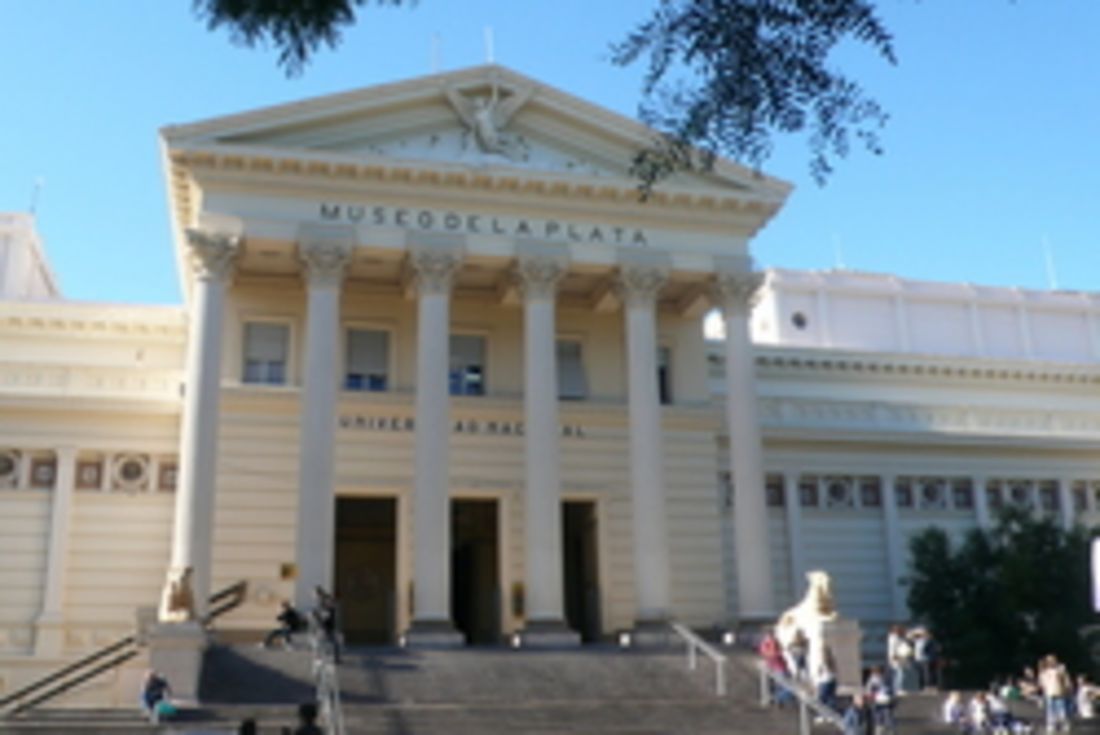Good times in the Museum of Natural History in La Plata (Argentina)
Following one month at the Dallmann Laboratory/Carlini Station on King George Island/Isla 25 de Mayo, I continued my IMCONet exchange visit with our partners Martha Ferrario and Gastón Almandoz in the subtropical Buenos Aires Province at the Natural History Museum of the city of La Plata. By the records of the British journalist Bruce Chatwin this museum is one of the most important in Latin America. We started viewing, organizing and interpreting data from several oceanographic expeditions in the South Atlantic during recent years. Among these were the “Patagonia Austral” in March/April 2012 with the Argentinean research vessel “Puerto Deseado”, the “El Rincón” and “Los Golfos” expeditions with the motor sailing ship “Profesor Bernardo Houssay” of the Argentinean coast guard (Prefectura) in March 2013, the “Primavera Bonairense Patagónica” expedition in October/March 2013 again on R/V “Puerto Deseado”, and finally the expedition with the Canadian research vessel “Corilois II” to the St. George Gulf/Golfo San Jorge in February of this year.
Apart from data mining, the aim of this research secondment was to plan and initiate publication of this huge amount of data and marine knowledge. After the start of this work I travelled to the Instituto Argentino de Oceanografía (IADO) in Bahía Blanca to meet IMCONet partner Mónica Hoffmeyer to involve her in the work with these publications and to coordinate future project collaborations. At IADO I also started clarifying a lot of logistic and administrative issues with the shipment of our expedition equipment which, unfortunately, in Argentina never is an easy and straight forward thing to solve. So I am taking the chance to thank friends and colleagues from IADO for their great support in resolving all the problems and paper work, especially Rubén Lara, Facundo Barrera and Norberto Malarini.
In summary we worked jointly on the preparation of seven publications within this secondment supported by the EU network program, and I can say that the 3 months of IMCONet exchange belong to the most productive period in my professional life as a scientist.
For me this period was the first longer research stay outside the AWI, and my impression is that part of the high productivity during such stays is due to the fact that being abroad many things which are time-consuming and distracting fall away. For example: phone calls, visits to the office, a lot of administrative stuff, meetings, but also more private distractions as sports, social activities, cultural events, grocery shopping, all the household work, etc. All these things as a sum do mean effort, where as being an IMCONet guest in Argentina allowed me to put all my concentration and efforts into science, which was a good experience not only because it was so productive, but also because it was a lot of fun and motivation for me and my colleagues in Argentina and for me a welcome escape from the professional routine.
Greetings from Argentina
Bernd Krock

